What better way to celebrate Ichiban Kasuga’s birthday than a late review of Yakuza: Like A Dragon? This title is a big entry into the main Yakuza series that isn’t only changing the main character but also a lot of traditional elements of Yakuza games that fans come to expect. Today we dive deep and see if all the changes are worth it!
The Story & Characters
Yakuza: Like a Dragon sort of feels like a soft reboot of the franchise with it having a fresh new protagonist taking the helm, while its hard to fill the boots of a character like Kazuma Kiryu, the team really knocked it out of the park with Ichiban Kasugra. While the game does have extended cut scenes that feel a bit longer than some of the past games, it also has a lot more to set up including Ichiban Kasuga’s backstory, introducing the Awaraka Tojo Clan, setting up the three-way war in Yokohama, and even fleshing out the characters that end up joining Ichiban’s party. The story might have a lot of characters and plot lines, but the team does a great job of tying them all together, along with some twists along the way. I do think that some of those twists are a bit far fetched, but RGG’s storytelling has come a long way in terms of storytelling and this game really showcases that.
Unlike Kazuma Kiryu, Ichiban’s character really relies on his party members, not just for combat but also to drive the story forward. One thing I always appreciated about the Yakuza series was that it wasn’t your typical Japanese game setting or characters, Yakuza: Like a Dragon carries over the tradition by having a large cast of mostly middle aged men along with the game’s real world setting. Your early team in the game is made up of Ichiban Kasuga; a failed ex-Yakuza, the grumpy homeless man Yu Nanba, Koichi Adachi a retired ex-detective, and Saeko Mukoda, a bartender from a hostess club. You also unlock three more playable characters throughout your journey, but I’ll leave these as surprises for you guys. While the Yakuza series wasn’t shy about giving socially shunned occupations a human, sympathetic face; the series continues to dive deeper into these issues facing Japanese cities and even has storylines revolving around soap lands which seem like taboo subject matter for most Japanese media. These aspects of Yakuza and its exploration of the homelessness or foreigners in Japan is the little things that makes the series unique and interesting.
For Kazuma Kiryu, the made up red-light district known as Kamurocho has always been the home for his games and the city grew and changed along with each release. Since Yakuza: Like a Dragon has a brand new protagonist, it also takes the story away from Kamurocho and into Isezaki Ijincho in Yokohama. Ijincho is a large, diverse red-light district that has a lot of neat scenery and cultural landscapes to explore. You have places like the homeless encampment block where our hero starts his journey, Brothel districts and even the large Hamakita Park. Since the city of Iijincho is in a three way turf war with the Chinese Liumang, the Korean Geomijul and the Japanese Siryu Clan; the city really does a good job of seeming divided by having large portions of the city dedicated to being a Korea Town and even having the Chinese themed Restaurant Row. You can tell that RGG Studio took a long time crafting a new city that would not just be used for a one off game, but have the ability to change with the series as it moves forward and I can’t wait to see Ijincho in future games.
SEGA has also been investing even more into localization, which has resulted in games like Judgment and Fist of the Northstar getting a full English Dubs. Yakuza: Like a Dragon will be the first main series Yakuza games to get a full dub since the debut of the first game on the PS2 which left a lot to be desired. I can now safely say that the dub in Yakuza: Like a Dragon is damn near perfect with every actor doing an incredible job slipping into their roles. I can complain about some of the minor characters, but I feel like they were purposely hamming up their dialogue to fit the Japanese actors’ tone. Just like Judgment, SEGA took extra time to animate the mouth movements with the English voice over and it does a lot to immerse you into the game.
I used to be in the group of Yakuza fans who thought that the franchise didn’t need a English dub, but SEGA’s localization team has proved me wrong. I also think its the perfect timing to introduce a English dub, since most of the main characters in this game are new, thus we don’t have a Japanese voice we got attached to. It really surprised me to the extent that the localization team went through when I was playing the game, especially with how much Japanese dialogue there are in Yakuza titles. The team even went in the game and had the English voice actors sing through the Karaoke songs and its pretty awesome. I suggest everyone try giving the English dub a spin, there was a lot of love and effort put into it and it shows.
Gameplay
The protagonist and setting isn’t the only thing that the studio went back to change. Yakuza: Like a Dragon also drops the real time combat that has made the franchise popular throughout the years and is now featuring a brand new turn based combat.This had fans divided before the release and I have to say that the team did a really good job making the combat engaging and fun. It seems that the team really dove into popular Japanese turn based RPGs and figured out what made their combat actually fun to play. Yakuza: Like a Dragon is pretty simple to pick up and play battle system filled with the basic commands such as attack, skills, invasion and blocking. The game does add button prompts when doing bigger skill attacks, sort of how Paper Mario handled it. If you press the buttons (smash square or time the triangle button) you get a slight boost in damage. The game also allows players to time the block button as the enemy is about to hit you, which will not only reduce the damage taken but also protect against status effects from the enemies’ attacks. If you don’t like the idea of always pressing buttons during battle you can also take them off in the menu within the game. Personally I find having button prompts on makes the battles more engaging to me, so I keep them on. There is also an automatic combat mode, but I enjoyed figuring out attacks that chain well together and new strategies. But hey, if you’re too lazy to play the game, there are options for you.
One of the reasons that the combat is so engaging in Yakuza: Like a Dragon is because of its great job system, where you can change the gameplay style of your character whenever you want. The base game comes with 20 different jobs, each basically using its own weapons, having a slew of unique animations and a ton of skills. Sadly, I didn’t have time to try each one in time for this review, but did use two to three jobs per character and it was a blast. The job system also has its own levels, apart from your characters level, so if you switch to a new job you will have to start leveling up from scratch to open up new moves. This is definitely a bad thing for users that dislike grinding, I wish that RGG would have allowed you to transfer XP from Job to Job to get players to experiment with different jobs. Starting a new job from level 1 seems like a lot of work if you already have one at let’s say, level 25. I also liked that the game’s RPG job system is centered around jobs already introduced into past Yakuza titles like Foreman, Idol, Hostess and so on. I also appreciate how giving Yakuza: Like a Dragon is when it comes to handing out XP, since the game only allows you to have a active party of four, that means some characters have to sit out; thankfully those sitting out still get XP from battles. The game also features a slick Tag Out system that lets you switch an active party member for one sitting out during a battle; it even lets you tag out a party with 0 HP. Very important and can save your ass during some of those intense battles.
Like most JRPGs out there, Yakuza: Like a Dragon can feel a bit grindy at points and quite frankly it also has some difficulty spikes. There are especially glaring points in the game where you are forced to allocate a certain amount of money to continue the story, moments like this can be a bit frustrating and I think its bad game design, but this is all a matter of opinion. There is a ‘arena’ you unlock way later into the game that lets you level up quite easily, its just too bad it wasn’t added sooner into the game as it would have made some of these grinding points a lot more simple. While most of the systems in the game are pretty streamlined, its perplexing that Yakuza: Like a Dragon made accessing your cellphone a bigger hassle. In the past the phone was streamlined to a button press, but now you have to go into your start menu and then smartphone; then you can access some apps like calling a Taxi from anywhere and checking out your list of bad guys you’ve faced. My issue is that these features could have just been added to the main start menu instead of going into the start menu and hitting the smartphone to access these apps. The game also doesn’t do a good job of letting you know how powerful some of the enemies on the street are, it has a meter on top of the map that tells you how dangerous a area is, but its hard to know early on what it even means. It would have been easier to just show the enemies levels over them.
I made a list of little aspects of the game that you might want to know:
- Losing a battle means you lose half your cash on you, thus making depositing money in stores that much more important.
- Taxis aren’t marked on your map until you actually find them and get in them. If you see one, enter it so its marked on your map forever.
- When looking at Jobs to switch to, you can actually look at what moves they unlock by pressing Triangle on the PlayStation controller. For some reason I didn’t figure this out until after I beat the game.
- There are barracks that you can only break down if you unlock a skill, the only way to get this skill is to switch Ichiban’s job to Foreman, which unlocks it right away. You don’t even have to play as a Foreman at all, but the skill is very important. Especially when you unlock underground dungeons.
Mini Games
Yakuza: Like a Dragon is jam packed with mini-games, which isn’t surprising to fans of the series, but I was actually shocked at how many brand new mini games were featured in this game. The first one we are introduced to is Survival Can Collection where you collect cans while riding a bike through a course that reminds you of Pac-Man. This mini-game also features enemies that take cans from the map and can run into you and steal your precious cans!, Gathering boost on the map and running into them is the only way to survive. The mini game also plays with the time clock as you have to keep track of it because you have to be back to the start of the course by the time it reaches zero. Sort of NiGHTS into Dreams… rules. We also have a movie theater mini game where our character watches a film and must stay awake. The only way to do this is to hit the button prompts as the film plays. Since our hero is poorly educated, Vocational School is now a mini game where you take quizzes as Ichiban to boost his stats. Remember the property management game from Yakuza 0? A new version makes its debut in Yakuza: Like a Dragon and its rather fun, time consuming and highly suggest you play to the first goal of at least getting your business to the top 100 since you unlock a very useful unlockable.
I think outside of all the new mini-games, my favorite was Dragon Kart. The studio took the idea of the popular Pocket Racing mini-game from Yakuza 0 and literally made a sorta stiff Yakuza Kart game with its own story and villains. Its actually full of surprises and super silly. There are also a lot of cool cameos and callbacks to past Yakuza titles which is fun for fans. Yakuza: Like a Dragon also has some of my favorite mini-games from past titles including darts, poker, batting practice, golf, and a lot more.
While these new mini games are awesome, one thing that disappointed me was the lack of new SEGA arcade titles in this game. Sure, not everyone is playing Yakuza: Like a Dragon for old emulated SEGA games, but I expected at least one new title included here. Judgment had two exclusive SEGA arcade games: Motor Raid and Kamuro of the Dead (which is created specifically for that title). This obviously doesn’t ruin the game as the selection of retro games included here are great and it includes both Virtua Fighter 2 and 5, plus older arcade classics like Fantasy Zone, Out Run, Super Hang-On, and even Space Harrier. But it would have been awesome to have at least one new title for Yakuza: Like a Dragon, especially considering its a mainline Yakuza title.
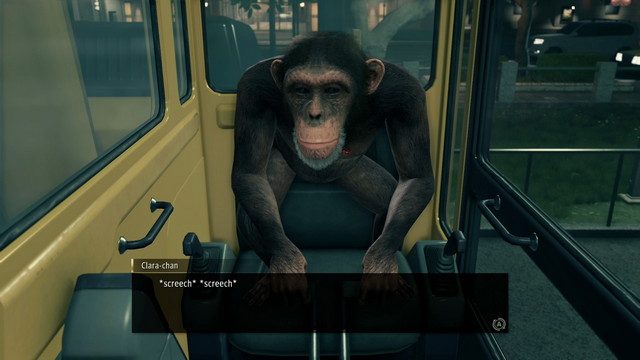 Another huge pastime in Yakuza games is the substories and Yakuza: Like a Dragon has a wide cast of characters that you meet throughout your adventure. Yakuza: Like a Dragon features over 50 of these stories that range from tragic to over the top, to wacky, and some that leave you questioning what you just played. These are all normal feelings and means that the studio hit all the right notes that fans come to expect from their games. Yakuza’s substories also have a ton of callbacks to some of the past games which I loved, but it seemed to be especially fond of calling back to Yakuza 0, so if that’s your favorite entry then you’ll be right at home.
Another huge pastime in Yakuza games is the substories and Yakuza: Like a Dragon has a wide cast of characters that you meet throughout your adventure. Yakuza: Like a Dragon features over 50 of these stories that range from tragic to over the top, to wacky, and some that leave you questioning what you just played. These are all normal feelings and means that the studio hit all the right notes that fans come to expect from their games. Yakuza’s substories also have a ton of callbacks to some of the past games which I loved, but it seemed to be especially fond of calling back to Yakuza 0, so if that’s your favorite entry then you’ll be right at home.
Conclusion
Yakuza: Like a Dragon has some minor hiccups with how long it takes to set up its story and characters, but it has a lot of setting up since its a soft reboot for the franchise. But the story being told here is fantastically handled and all scenes have a payout towards the end. Yakuza: Like a Dragon took bold steps into changing fundamental aspects of Yakuza games like the main protagonist, city and even the combat into something that’s uniquely its own but at the same time feels right at home for older fans. Its a tight line to follow but the team did everything with flying colors. Yes, the game has some grinding and parts where I wish they put more thought into the level design instead of just asking the user to grind out a certain amount of money to move forward.
Even with all these minor issues, Yakuza: Like a Dragon has engaging characters, high budget cutscenes, an incredible dub, and even better yet a great story to tie it all up. I found the combat to be great, I think that the job system is brilliant and I’m excited where the future of the Yakuza games goes from here. The team has done nothing but knock it out of the park when it comes to their more recent games. I’m ready for more Ichiban adventures going forward, especially with how the game ends. That’s why I’ll be giving Yakuza: Like a Dragon an A. While not perfect, Yakuza: Like a Dragon is just a fantastic game and one of the best JRPGs i’ve played this year, which is saying something considering Persona 5: Royal also came out this year. If you’re a fan of JRPGs, playing Yakuza: Like a Dragon is a no-brainer.
Positive:
- Great characters, story
- New gameplay changes fun/engaging
- Amazing English dub
- DRAGON KART
Negative:
- Grindy
- Can’t change XP from Job to Job
- Long cutscenes are long
 “Ichiban is #1 now!”
“Ichiban is #1 now!”

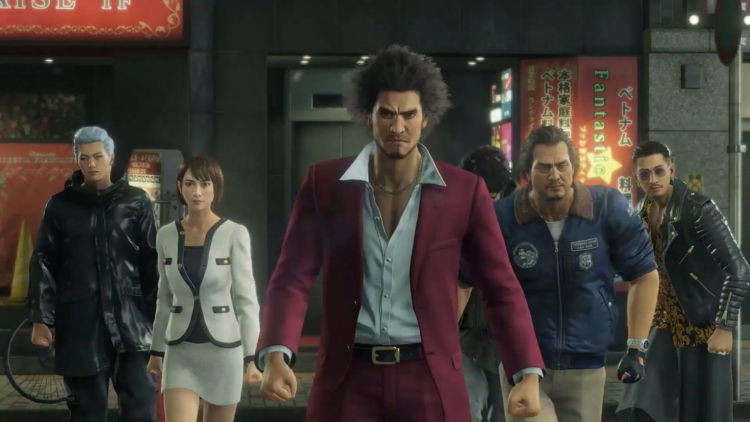
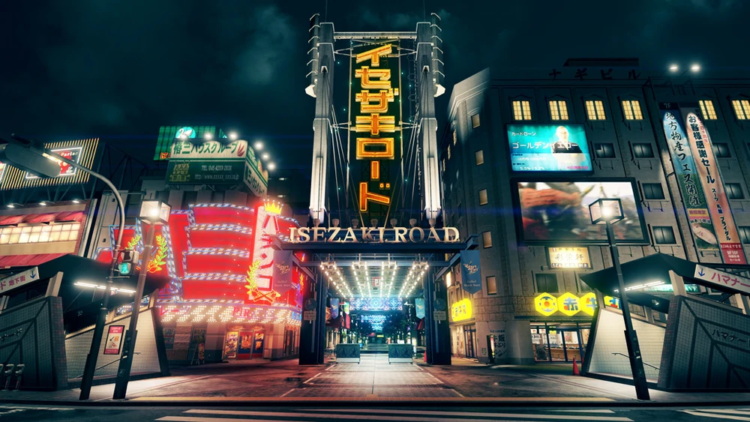
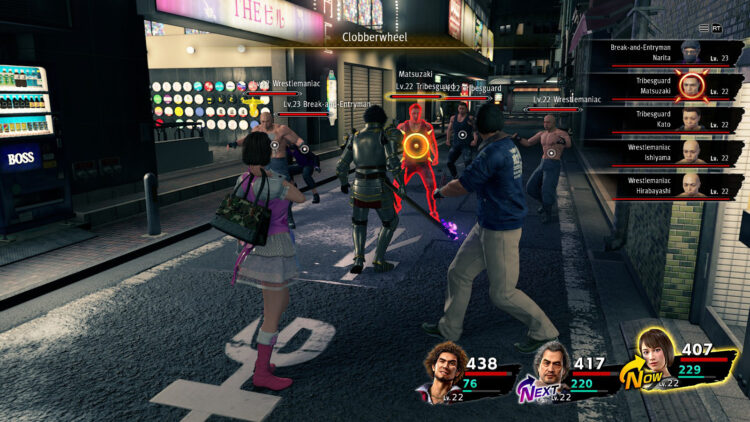
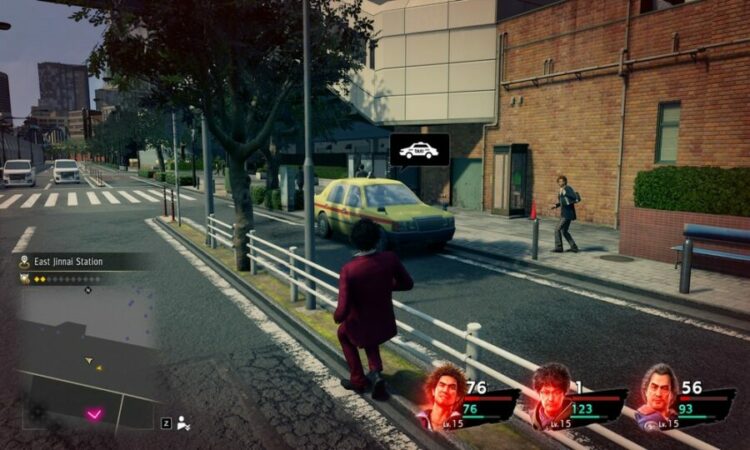
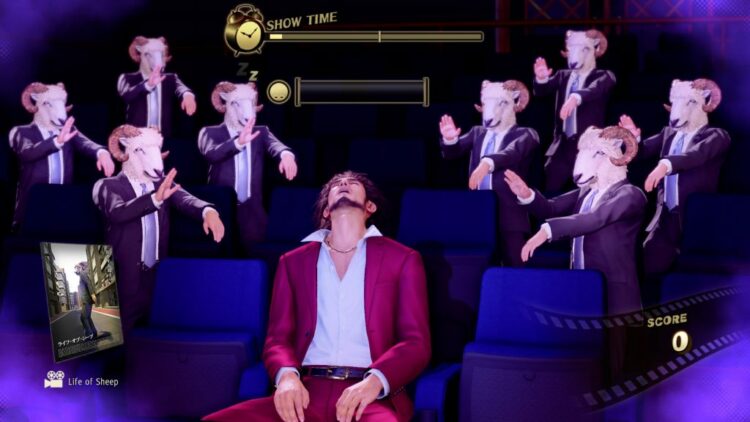
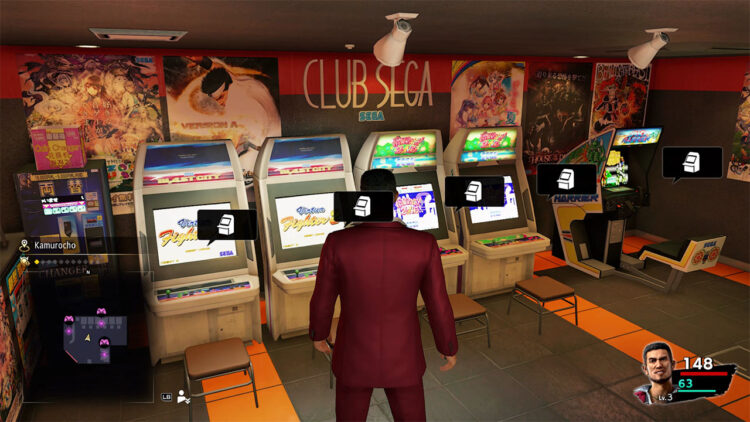
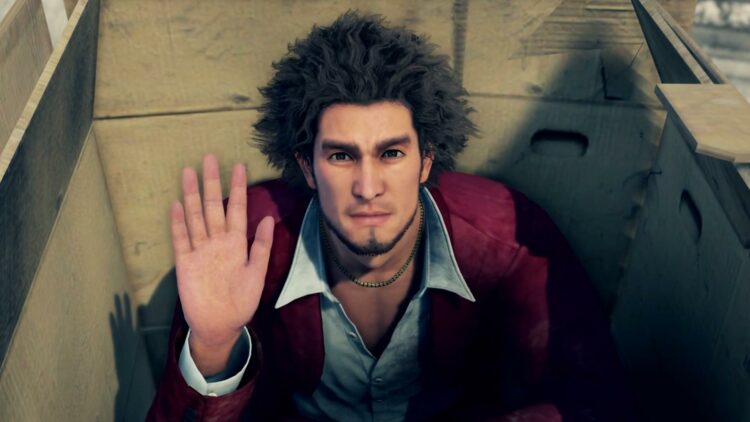





Sonic 1 prototype was finally found
Hope they return to beat em combat in Yakuza 8.